by Michael McCarthy
I first remember becoming aware of Kane Roberts when he was in Alice Cooper’s band at the same time as Kip Winger on Alice’s big, 1986 comeback album Constrictor. Prior to that album, Alice had released nearly a half-dozen misunderstood records that failed to do very well. (Although I happen to like most of them.) However, now armed with Roberts and Winger, Alice was unstoppable. And that was largely due to Roberts, who co-wrote the entire album with Cooper and not only contributed all of the album’s guitars but played some bass and even drums on it, too. (Roberts also wrote the successful follow-up album, Raise Your Fist and Yell, along with Cooper and Winger.)
After thrusting Cooper’s music back into audiences’ ears, Roberts released his 1991 solo album Saints & Sinners. It was the ultimate hair metal album, loaded with huge, stadium-ready anthems featuring big choruses and powerful hooks. Every track on the record could’ve been a hit single. And it featured a cover of a song Jon Bon Jovi and Richie Sambora wrote with Diane Warren and Desmond Child called “Does Anybody Really Fall In Love Anymore?”, which was the ballad that defined the summer of ’91 with almost constant airplay on rock radio. It was even in heavy rotation on stations that typically didn’t play heavy metal music, so it was quite the coup. That crossover hit that every band at the time was hoping to land with their ballads but few could actually achieve. Unfortunately, then the grunge scene struck and Kane vanished from my radar. Until just recently. You see, Roberts makes his triumphant return to the heavy metal scene for the first time in years on January 25th, 2019 with the release of his new album, appropriately entitled The New Normal, on Frontiers Records. And please allow me to put it bluntly: the record kicks some serious fucking ass. Longtime fans will rejoice upon hearing massive songs like “King of the World” and “Wonderful,” which kick the album off like a burst of Nos propelling a race car forward with magnificent energy. Energy the album maintains from start to finish. Meanwhile, it also features plenty of modern flourishes, which range from Alissa White-Gluz’s death metal vocals to cinematic soundscapes to beats Roberts and co-producer Alex Trac tweaked to sound a bit like electronica. To that end, another thing that’s for certain is that The New Normal was exquisitely-produced. Every note of every song has a purpose and sounds incredible. And on that note, I think it’s time we hear from the man himself. Crank up the tunes as you read.
KR: So, you’re from Boston?
MM: Near Boston. I was born in Lowell. I actually lived out there in L.A. for a few years then some health problems drove me back here, but I’m hoping to move back there.
KR: That’s great. I’m from Newton, Massachusetts. What’s wild is you’re kind of like me. You sort of have the accent, you know what I mean? You said years a little bit [with a Massachusetts accent], but I get the same thing. People go, “Are you from the East Coast?” They can’t quite tell. You’ve escaped a very funny accent. Good job.
MM: So, whereabouts in L.A. do you live?
KR: I live in Studio City. You know where that is, right?
MM: Yeah. I was in Glendale.
KR: Glendale’s pretty cool. When were you last here?
MM: 2006. So, it’s been a while.
KR: So, you know about the malls and all the cool stuff that’s there?
MM: They added the second one after I left, but I’ve seen photos.
KR: Yeah, now there’s the Americana Mall in Glendale. When you just want to hang out, it’s one of those.
MM: I went to the Glendale Galleria many times, which I understand is still there, too?
KR: Yeah. That’s a nice one, too. It’s got the Nordstroms and all that. That’s funny that we’ve both lived in the two places that I lived. Although I lived in Manhattan for a while, too. It’s just funny that we’re both East and West Coast.
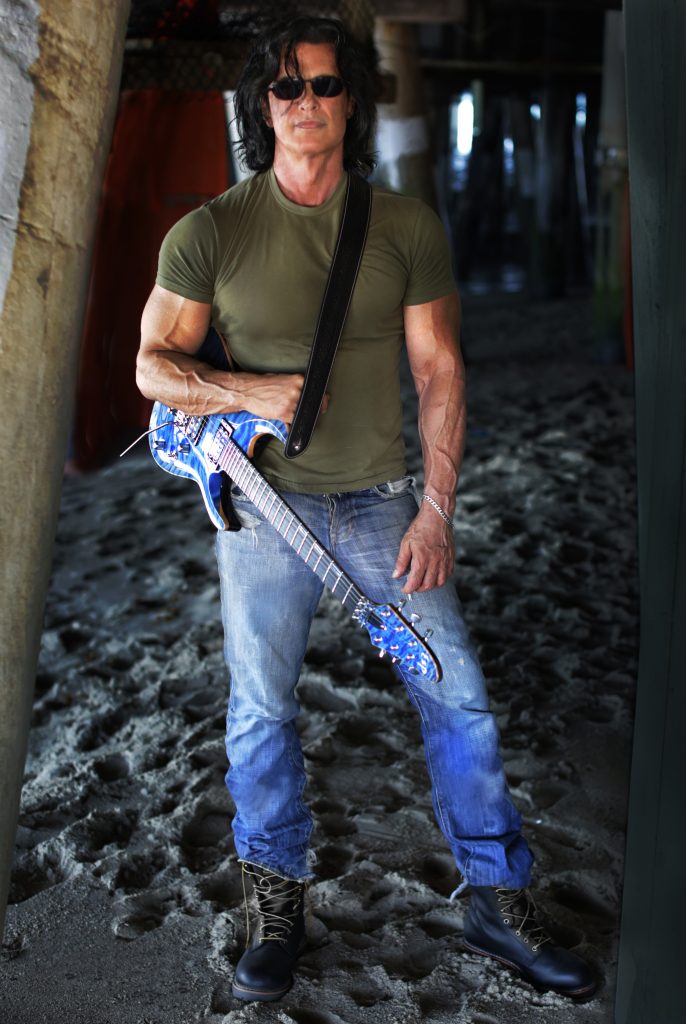
MM: How long have you been out there?
KR: Since ’84. Alice flew me out here and I’ve stayed living here ever since. Shep Gordon, his manager, who became my manager, set me up in a house with a car and just really took care of me. I walked in one day and Shep like put a contract on the table. He said, “You’ve got a record deal with Irving Azoff at MCA.” It was kind of like total culture shock. I remember when I first flew out I was gonna meet Alice. I had already met him but I was going to meet up with him at Shep’s house to write. I didn’t know anything about Alice. And I didn’t know anything about Shep’s house in Beverly Hills. It was an incredible place. Literally, a week before I’d been playing at strip clubs on rock night. I made maybe eight bucks at the end of the night because we would do the door. It might be a little bit crowded, but you couldn’t survive on it. To make money, I dealt cards at an illegal blackjack game. We’d go to different hotels. The guy who ran it would get a conference room. So, I’d play a show at a club for pocket change and go to this hotel, whichever one it was. The guy would take me into the room and show me where all the guns were and then I would deal blackjack until eight in the morning and I’d go home with a thousand bucks or whatever, but that wasn’t every night. It was one night a week. But that’s how I survived. And now I’m in Beverly Hills and it’s really funny. I was standing there next to Shep and Shep said, “I’ll be right back.” He’s got this really low voice. So, I’m looking at his pool and this really gorgeous, naked girl comes running out and jumps in the pool and I’m going I think I can fit in here a little bit. And then I flew to Maui and started writing the Constrictor album, the first album with Alice. It’s really interesting.
MM: Awesome. So, the press release for The New Normal didn’t say who produced it. Did you produce it yourself?
KR: Yeah, I produced with Alex Trac. We were really lucky. He owns a full-on studio. I didn’t want to record at home. For me – I don’t know if it’s the same for you – but if I’m in a creative zone doing something, it’s really best for me to not be staring at the stuff that I’m looking at all day. If I’m home, I’m gonna end up jumping on the couch in my living room and I end up doing that. So, what I decided to do was try to find a situation where I’d have a studio and then when Alex heard some of the music we decided to partner up on it and make it a co-production. I was in a real studio, recording until 9PM, 10PM every night, five nights a week. I could be there until four in the morning, but for three years – because that’s how long the record took – I was able to go to a real studio and treat it like it was some sort of science project. I’d say, you know, that sounds great, and then six months later I’d say I should do some different choices there, and my singing is coming back and it’s a lot better. I was kind of lucky.
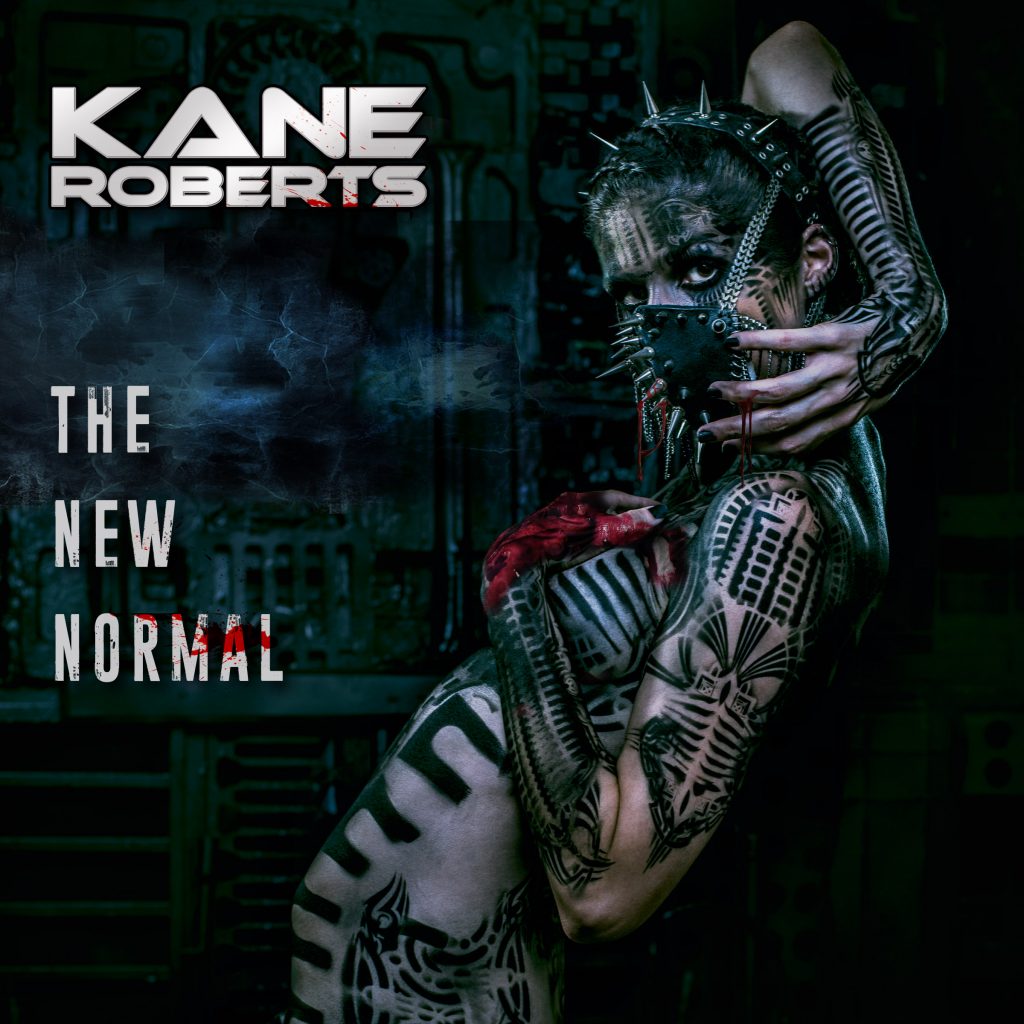
MM: Why did it take three years?
KR: Well, think of it this way, I’d been off the grid. I liken it to walking into a room and it’s completely black and you take a step and you have to have faith that there’s a floor in front of you. So, that’s what this was. Every time I’d step back to the mic, I wasn’t sure what was gonna take place. A couple of things happened in the first year. My guitar playing I knew because I never stopped that for a minute, but the thing is that as my voice came back it had a really tremendous influence on what the writing was. I saw what was potential. I hadn’t lost my range. My ability to interpret songs came back and I was almost like a new artist. I was feeling differently and singing differently. So, it sort of influenced the whole project. And the other thing was that we came up with an almost cinematic approach to everything. Every song, the guitar solo is there because there’s a reason for it in the script. Or the lyrics of the song, or the feeling of it, and stuff like that. And the record company was the most patient. They were unbelievable. Frontiers is an incredible place for any artist to end up and try to create and record and everything. Serafino and Mario are the absolutely best.
MM: They didn’t give you any pay cuts for taking so long?
KR: We were three years late and they didn’t do that, no. [Laughs] When you think of it, we were seven months in and I kept calling and Serafino wasn’t happy. Serafino is a bad ass. They both are, but Serafino’s a tough guy. He was like, “Shut the fuck up and give me the record.” And when he got the record, he was really happy. And see, I think what happens with them is yeah, they have a business model and can be tough, but if the music to them is good then they’re happy. Because, A, they define their company that way and, B, the reason they even got into it was the music. It’s a legit situation. Trust me, I’ve been on MCA and Geffen and all these labels and this has been one of the absolute best.
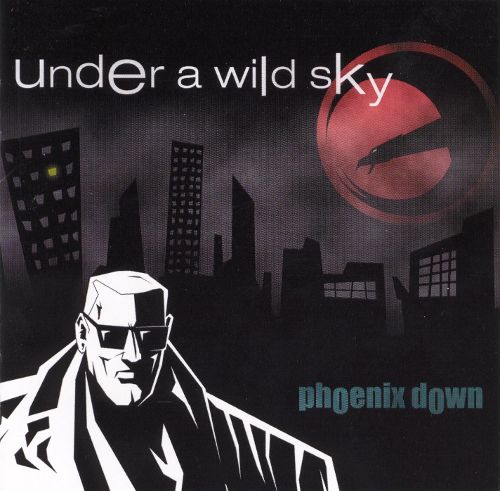
MM: Cool, very cool. Now, I know you released an album under the name Phoenix Down on Frontiers back in ’99.
KR: Now and Then was the label, but Frontiers distributed it.
MM: Had you been in contact with Frontiers over the years?
KR: No, no. I never really spoke with them. I might’ve mentioned something and they might not have been interested. I have a vague remembrance of that. But I came up with this song and recorded a demo and Kip Winger said let me just run it by Serafino and see what he says. And they agreed to it. I was very pleased. So, that was the kind of situation. Kip had a tremendous amount to do with it. He plays on the record, he arranged the strings and everything. That guy is still extremely passionate about music and very prolific with his Grammy nominations, which is unbelievable. So, all the people I got involved with, I felt [like] they were breathing rare air. Their standard is so high. And that’s gonna help uplift me, which was the ultimate goal.
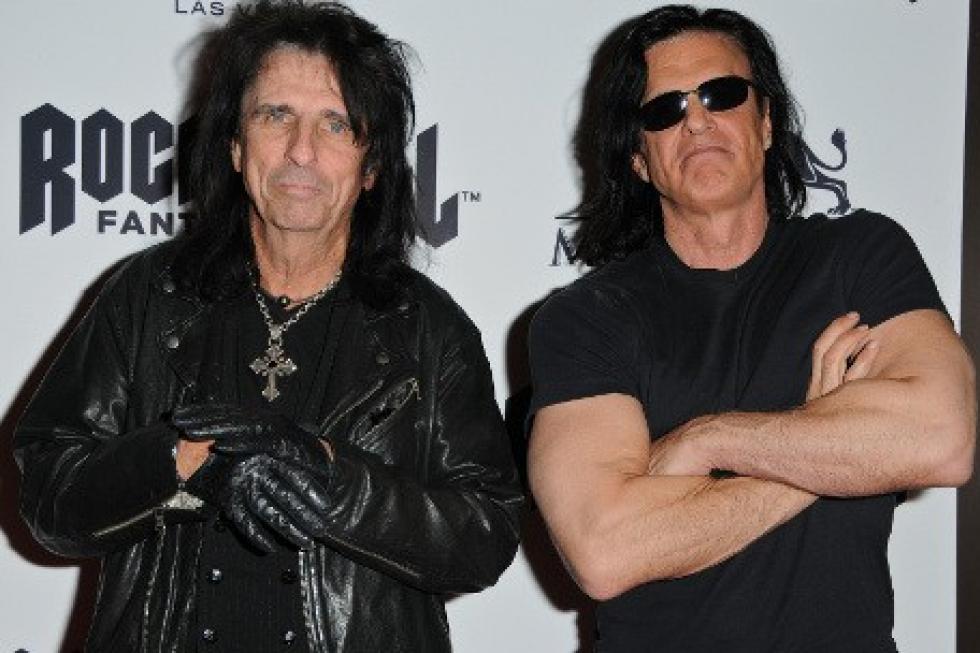
MM: Frontiers likes to take different artists from their roster and pair them up together. Like you’ve got Sweet & Lynch and Goldy/Eisley and such. Have they approached you about doing something like that?
KR: You know what’s really interesting – it’s funny because I haven’t gotten that question, but I had gotten questions about collaborations or joining other bands. If you think about it, the only band that I ever could’ve joined with the way I looked and played and acted was Alice Cooper. I’m a 230 pound, muscular guy, built like a beast. Do you think I’m gonna join White Lion? It’s not gonna happen. [Both laugh] I thought about it the other day. How many shots did I have? It’s pretty unbelievable. I look at that as a really strange kind of quirk of fate. In other words, people would say to me, “Do you want to play music? What makes you think you’re gonna do anything? There are a million guitar players out there.” So, I became obsessed with the thought of it and I was just gonna do it, that kind of thing. I think it ultimately made me believe that if you put in the hours, if you really try to be great, and you hit a certain mark [it will pay off]. I’m not saying I was great. When I moved out to L.A. there were so many amazing guitar players. I just sat down and started practicing. I was like, fuck, there’s so many great players out here. So, I’m not saying that. But I think the world will beat a path to your door. I say that to younger artists who are trying to find their way and stuff. That’s the kind of the faith you have to have. It’s the same thing with me going up to the microphone after so many years. When you don’t know what’s gonna happen – when you’re in the dark – that’s when faith emerges, that sort of a thing. I was kind of hyper. A mental case. So, yeah, in my mind I knew what was coming, but how I ended up at Alice’s door, I don’t know. They liked the fact that I didn’t look like everybody else because it’s Alice Cooper, way off Broadway.
MM: Alice does guest vocals on “Beginning of the End” with Alissa White-Gluz from Arch Enemy. How did Alice become involved with the project?
KR: One of the reasons I was in Alice’s band at all – and this is a big one, you know – is that we became best friends the first day. The ability, yeah, Bob Ezrin is the one who noticed my writing ability. I did go through an initiation of fire with him. He was keeping his eye on me. We didn’t get along in the beginning, but then we became great friends. So, you know, I’m writing this song with this kid Evan Magnus and I put down the first rough vocal in the studio and the rhythm section sounded good and everything – we didn’t get the final drums yet – but I sat there and I thought of that first line. I had written something about corporate greed and the powers that are out there, so I thought who could deliver those lines better than Alice Cooper? That would be amazing. And I thought I didn’t want Alice to just sing one line or say something at the beginning of the song, I wanted to do a duet with him. So, I called him up expecting him to not answer or say he was on tour or whatever. I wasn’t sure what he was doing schedule-wise. And he was in town. He said, “I’ll be right over.” Literally, the same night I called him. So, he came in and he put that insane vocal on it and then as time went on I started thinking what would be the perfect team on this song. For example, who would bring the perfect drums and the guy from Babymetal, Aoyama Hideki, is one of my favorite drummers. He’s like a machine gun. And I sent it to him and he goes, “When can I hear the song?” So, he heard it and wrote back immediately and said I’ll do it. I know this is an odd way to think, but it’s one of the reasons why the album is called The New Normal because things have changed. If you look at that cover, if you look at that girl, 50 years ago if that was on the cover it would be banned. People would be freaked out. But I’m sure when you saw it you went, that’s kind of edgy. That kind of thing has worked its way into the culture. And then the other thing is there are certain artists out there, and many of them are female, who are just busting down on these cultural notions about the male-oriented industry and all this stuff and they’re just owning the stage. And Alissa is a phenomenal artist and I just thought, what would be better than for her to just drop in and detonate the whole song right in the middle of it? So, I went through the same process. And then the miracle of the whole project with that song is that I actually got Alice and myself and Alissa in the same room to shoot the video that’s gonna be out next. So, I have an accompanying video for that song.
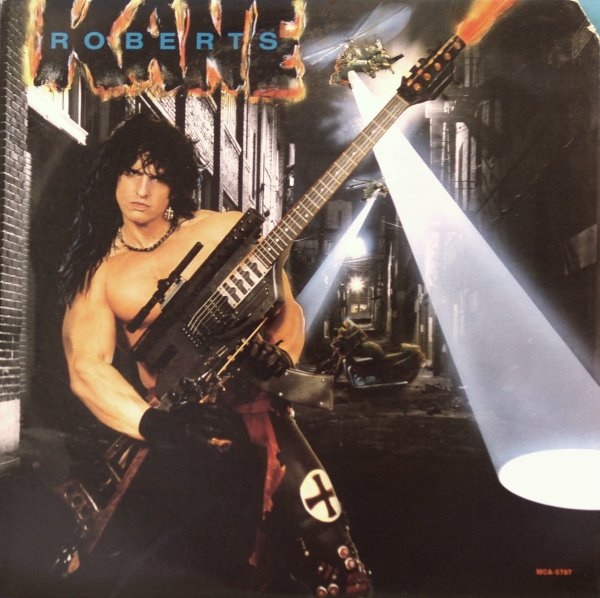
MM: I was surprised to hear that the album has some electronic beats on it, and Alissa obviously adds some death metal vocals – things that typically you don’t hear on a Frontiers Records release. Did they give you any resistance about those elements at all?
KR: As long as it didn’t sound synthetic. In other words, we didn’t do – and I understand what your point is, by the way – we didn’t do necessarily electronic beats or whatever. Those are all the samples that we adjusted and stuff like that. We would get a real drum. A real drum core thing. And then we would adjust it with our equipment. So, it was us doing everything. There wasn’t a bunch of African drummer guys in my studio or whatever, but we wanted to keep everything really powerful, and we wanted to make it something different, and our point was that the album was gonna get heavy. There are heavy guitars on it. The shredding on the guitar. The singing. There are all those elements that are part of who I am and part of the music that I love. But once we got into the atmosphere of this record we decided to do things differently and place an almost cinematic feel at the beginning of a song while it finds itself and gets hardcore and goes in a heavy direction. There’s a song called “Leave this World Behind” and I was getting ready to do the guitar solo and I said, I don’t want to just throw a guitar solo over the chorus and stuff. I said, “Everybody fucking does that.” I said, let’s take the whole band out and put this little drum core underneath me and I’ll just solo over that. And it ended up being some of the most fun that I had playing guitar. That’s the way we thought of everything, and that’s why that ended up happening, and Frontiers totally is behind it.

MM: I like that the album has so many different elements on it. It’s kind of eclectic. It makes it more interesting that way.
KR: It makes it interesting and, for example, a song like “Wonderful” is just straight on and a song like “Forever Out Of Place,” it starts with this movie kind of an atmosphere then it moves into a heavy rock song. I love that sort of contrast. It gives it a little bit more. And [let’s] not assume that if it’s not bass, drum and guitar they can’t handle it. It’s ridiculous, you know?
MM: Have any reviews of the album come out yet?
KR: Yeah, yeah. I’ve seen a couple and [talked to] a lot of the people I’ve done interviews with and I would say at the very least they see that this isn’t just somebody walking into what is immediately holstered. I didn’t come back and just play a bunch of songs and record it in my house or whatever. I tried to push the boulder up the hill a little bit. Getting these other players like [current Alice Cooper guitarist] Nita Strauss trading guitar with me on “King of the World” and all that stuff. I really tried to care about it. And I started caring about what people are gonna think and feel when they hear the record. It’s like when I got on board with Alice Cooper before we were putting the tour together and all that stuff. I said, the last thing you want is for people to go, hey, Alice survived rehab. It would have to be more like he’s come back at a nuclear level. That’s kind of what the attempt was.
MM: Do you think you and Kip will ever reunite with Alice Cooper and have that line-up again?
KR: I don’t see it being an option and the only reason why is that his current band is frickin’ awesome. Have you seen him recently?
MM: Yeah, I saw him open for Motley twice.
KR: And you know what? It was an interesting time for Orianthi to leave because she partnered up with Richie Sambora and that’s awesome. But suddenly Nita’s there and they’re opening for Motley Crue. And I thought, what an amazing initiation by fire. And Nita just handles it like, you know, this what I do. I get up, I have a bowl of cereal, and this is what I do. If you listen to the first riff that she plays when she and I trade she comes in with a sledgehammer. It’s frickin’ amazing. It woke me the fuck up. I better do some jumping jacks before I do this solo, you know?
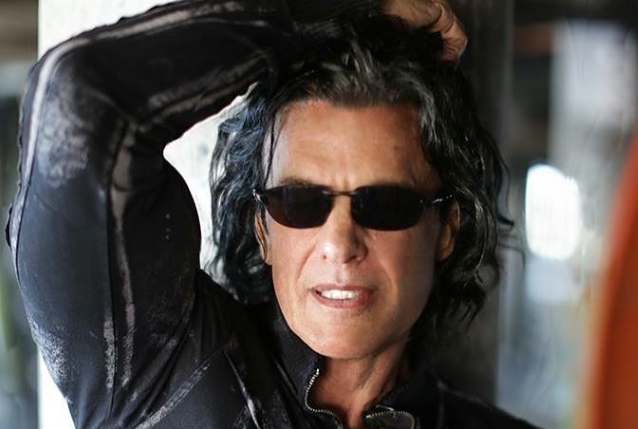
MM: Will you be touring in support of The New Normal?
KR: I don’t really think so. I’m not planning on it at this time. I might. But right now I just want to make it a visual audio kind of thing. I’m working on three or four videos. I’m working on editing this particular video right now that’s gotta be done in three or four days. That’s sort of my feeling. You can get a lot of reach out of Youtube and stuff like that. I’m stepping out into the public jet stream, but it’s kind of fun. If it seems viable – if this record has got enough legs on it – and there’s a great response then maybe I’ll do some live shows but right now, like I said, I’ve been off the grid for like a thousand years so…
MM: Finally, I have to ask you about Berlin. You contributed some guitars on the most popular Berlin album, Count Three & Pray. Which track or tracks did you appear on?
KR: People ask me that question and I don’t remember. It was so long ago. I just remember that Terri Nunn and the band were just the sweetest people. They would come by and were just sort of standing, watching you play, and they were really supportive and let Bob Ezrin do his work and I was just really pleased that I got the opportunity to meet them and be on one of their records.
Special thanks to Kane for taking the time to speak with us and to Jon Freeman for setting it up!
Follow Kane Online:

Leave a Reply to Ace Cancel reply